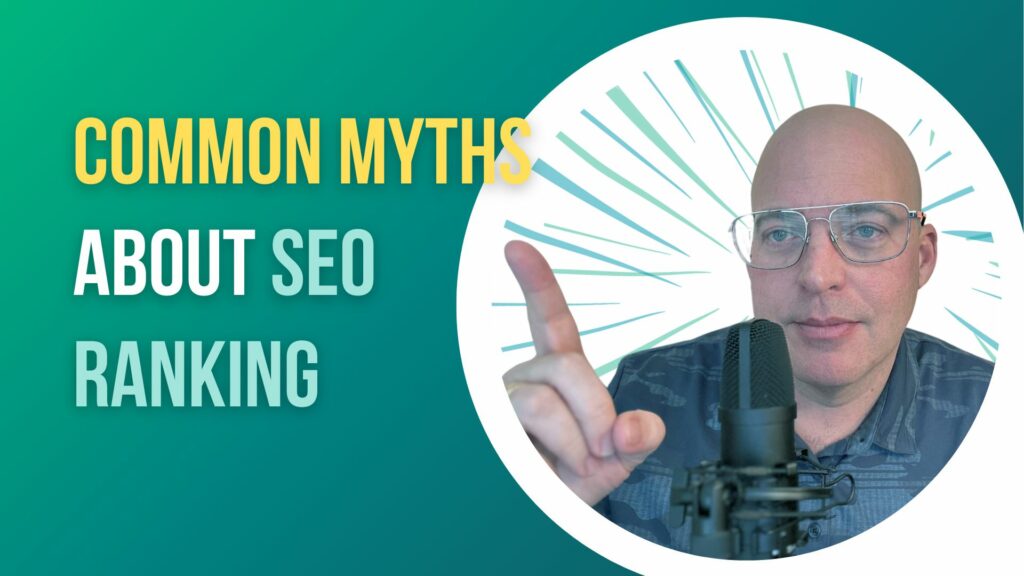Search Engine Optimization refers to a website’s position in search engine results, determining its visibility to users. The higher the rank, the more likely a website will garner traffic and achieve its objectives. Yet, many misunderstandings abound in the realm of SEO.
These misconceptions can lead to misguided strategies, harming a website’s potential reach. This article seeks to debunk prevalent myths about SEO ranking, offering clarity to those looking to enhance their online presence effectively.
Myth 1: Keyword Stuffing Guarantees Higher Rankings
Keyword stuffing, a once-popular SEO tactic, involves excessively embedding keywords into a webpage to manipulate search engine rankings. It’s based on the misguided belief that more mentions of a keyword will invariably lead to higher rankings. However, modern search engines have evolved, emphasizing user experience over keyword repetition.
Search engines, like Google, actively penalize websites that employ keyword stuffing, viewing it as an attempt to deceive users and offer low-quality content. Focusing on alternative strategies is more effective than resorting to outdated tactics. These might include creating high-quality, relevant content that naturally incorporates keywords or using long-tail keywords that cater to specific user queries. This avoids penalties and offers genuine value to the readers, which search engines reward.

Myth 2: Backlinks are the Only Factor that Affects Ranking
Backlinks, links from one website to another, are vital components of SEO. They function as endorsements, signaling to search engines that a webpage offers valuable content. However, the notion that backlinks are the sole ranking determinant is a fallacy. Search engines consider a multitude of factors when determining rankings. Quality of content, for instance, plays a pivotal role. Informative, well-researched content that meets user needs can significantly influence rank.
Other elements, such as user experience – encompassing mobile-friendliness and intuitive navigation – and website speed, also contribute to a site’s ranking. Relying solely on backlinks is a limited and shortsighted approach. For true SEO success, one must embrace a holistic strategy, focusing on diverse optimization aspects to ensure a website ranks well and provides genuine value to its visitors.
Myth 3: SEO is a One-Time Task
The misconception that SEO is a one-time task is far from reality. In essence, SEO is a continuous, ever-evolving process. This stems from the fact that search engine algorithms are regularly updated to improve user experience and counter deceptive practices. As these algorithms evolve, so must the strategies deployed by websites to rank effectively. Regular updates, maintenance, and revisions are vital to maintain or improve rankings over time. Simply setting and forgetting will likely result in dwindling rankings and visibility.
Moreover, websites must adapt their SEO strategies to remain relevant as the digital landscape shifts with emerging trends, user behaviors, and technological advancements. SEO efforts can be improved by staying informed about the latest algorithm updates, analyzing performance metrics, and making necessary content or technical adjustments. Ensuring consistency in producing high-quality content, monitoring backlink profiles, and keeping up with best practices are all part of the ongoing journey of SEO.
Myth 4: The More Pages a Website has, the Higher it Ranks
A common misconception in SEO is that simply having more pages will automatically boost a website’s ranking. However, in the vast landscape of the internet, quantity doesn’t necessarily equate to quality. Search engines prioritize relevance and value to users over the sheer volume of pages. Adding numerous pages with thin or duplicated content can negatively affect a website’s reputation and ranking.
The crux of effective SEO lies in producing relevant and valuable content that addresses user queries and needs. Instead of creating pages for volume, websites should focus on the quality and relevance of their existing content. Optimizing current pages by improving content depth, updating outdated information, and ensuring each page provides unique value can be far more impactful than adding more pages. A strategic and qualitative approach to content will always resonate better with search engines and users.
Myth 5: SEO Guarantees Instant Results
One of the most persistent myths in digital marketing is that SEO can produce immediate results. SEO is a time-consuming endeavor that requires patience, strategy, and consistent effort. It’s a long-term investment, where the groundwork you lay today might only bear fruit weeks or even months down the line. Search engines take crawl, index, and assign authority to web pages; competition is always fierce.
Expecting instantaneous results can lead to disappointment and misguided decision-making. Patience is key, as even with the best practices in place, SEO gains are typically gradual. Exploring other digital marketing strategies is beneficial while waiting for SEO efforts to materialize. Pay-per-click advertising, social media marketing, or email campaigns can drive traffic and conversions, complementing and enhancing your ongoing SEO initiatives. A diversified digital strategy ensures that while you build for the future with SEO, you can still achieve short-term goals and maintain visibility.

Adopting a Holistic Approach to SEO Rankings
Navigating the intricate world of SEO is challenging, making it crucial to distinguish fact from fiction. Emphasizing this significance, falling prey to prevalent myths can be counterproductive and detrimental to a website’s online visibility and credibility. These misconceptions can misguide businesses, leading them down paths of wasted efforts or, worse, practices that harm their standing in search results.
It’s imperative to step back, reassess, and ensure one’s strategies are rooted in genuine understanding. Adopting a well-informed and holistic approach to SEO ranking is paramount. This means continually educating oneself, integrating best practices, and evolving with the dynamic nature of search engines, ensuring that efforts are effective and sustainable.








